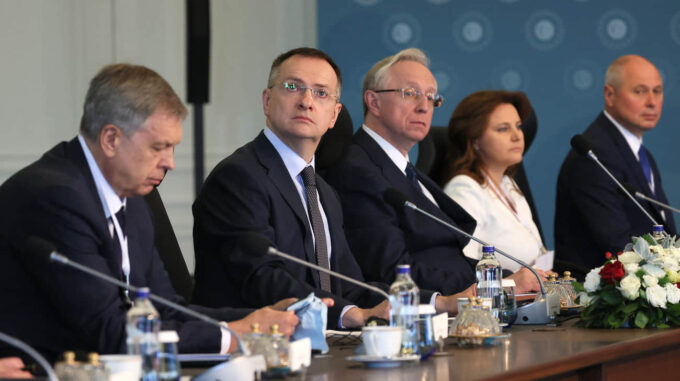In Russia, the ultimatums to Ukraine have been once again voiced in the context of possible conflict resolution

A new round of diplomatic maneuvers around the Ukrainian-Russian conflict has received an unexpected development: information about a Russian "memorandum" has appeared online, which, according to Ukrainian sources, retains radical and no less sharp ultimatum demands towards Ukraine. This indicates Moscow’s unwillingness to soften its position even when seeking ways to end hostilities, instead hinting that the ultimatums and principles laid out in the documents remain unchanged. The information about this "memorandum," citing an anonymous Ukrainian official, was shared by the American publication Axios. According to the source, it is likely that the documents transmitted by Russia still contain key demands that have long been discussed both officially and unofficially: in particular, recognition of Ukrainian occupation of parts of its territory and Kyiv's refusal to accept Russia’s conditions regarding the return of Ukrainian lands under its control. The source emphasizes that the Russian side’s stance remains "traditional" — the text again sets ultimatums regarding the full withdrawal of Ukrainian troops from territories claimed by Moscow. This is probably the main demand dictating any possible ceasefire or negotiation format. The "memorandum" also proposes, by July 10, the return of a small number of illegally deported Ukrainian children. This is part of a long list of over a thousand cases of Ukrainian children abducted, which has become one of the cruelest aspects of the current war. According to two independent sources, Axios clarifies that Russian diplomat Vladimir Medinsky claimed during negotiations in a delegation format that all reports about the kidnapping of Ukrainian children are "propaganda." He categorically denies Russia’s involvement in such actions and questions the number of abducted children: allegedly, "no one is kidnapping anything," and Russian soldiers simply "rescued" Ukrainian children where their lives were genuinely at risk. Medinsky emphasizes that Russian soldiers came "specifically to protect" and urges not to inflate the "crazy numbers" that are supposedly being imposed on the confused international community. Meanwhile, following a two-hour meeting between Ukrainian and Russian delegations — the second in the past two weeks, beginning on May 16 — the sides managed to agree on some issues related to the exchange of prisoners of war. Specifically, they discussed a long-term exchange of certain categories of military personnel and detainees. However, the Russian side hinted that it proposes Kyiv accept a temporary ceasefire only in certain parts of the front line, once again casting doubt on the possibility of establishing comprehensive peace in the near future. Thus, while Ukraine persistently seeks diplomatic paths to peace, Moscow maintains its ultimatum position, clearly hinting that its demands remain unchanged. This once again confirms that any negotiations with Russia at present involve a delicate balance between diplomacy and forceful ultimatums, and any concessions from Ukraine must meet the strict and uncompromising Russian conditions…

